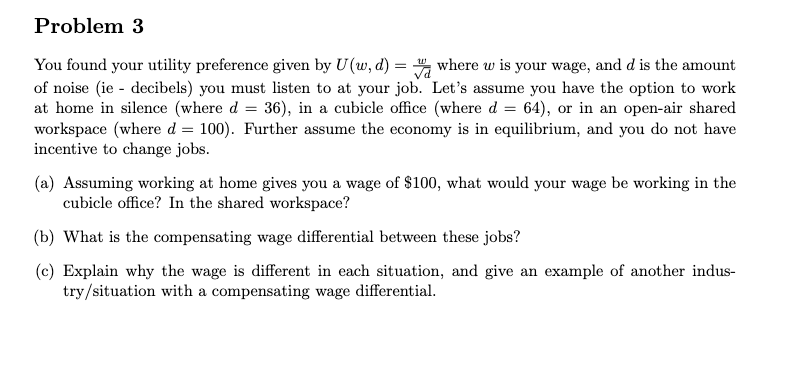Problem 3 You found your utility preference given by U(w, d) = ", where w is your wage, and d is the amount of noise (ie - decibels) you must listen to at your job. Let's assume you have the option to work at home in silence (where d = 36), in a cubicle office (where d = 64), or in an open-air shared workspace (where d = 100). Further assume the economy is in equilibrium, and you do not have incentive to change jobs. (a) Assuming working at home gives you a wage of $100, what would your wage be working in the cubicle office? In the shared workspace? (b) What is the compensating wage differential between these jobs? (c) Explain why the wage is different in each situation, and give an example of another indus- try/situation with a compensating wage differential.
You found your utility preference given by U (w, d) = w√d where w is your wage, and d is the amount
of noise (ie - decibels) you must listen to at your job. Let’s assume you have the option to work
at home in silence (where d = 36), in a cubicle office (where d = 64), or in an open-air shared
workspace (where d = 100). Further assume the economy is in equilibrium, and you do not have
incentive to change jobs.
(a) Assuming working at home gives you a wage of $100, what would your wage be working in the
cubicle office? In the shared workspace?
(b) What is the compensating wage differential between these jobs?
(c) Explain why the wage is different in each situation, and give an example of another indus-
try/situation with a compensating wage differential.

a) The utility function for the workers is given as:
where w denotes the wage and d denotes the amount of noise.
It has been given that
If workers work from home, then,
If workers work from office, then,
If workers work in an open air-shared workplace, then,
Trending now
This is a popular solution!
Step by step
Solved in 2 steps with 1 images






